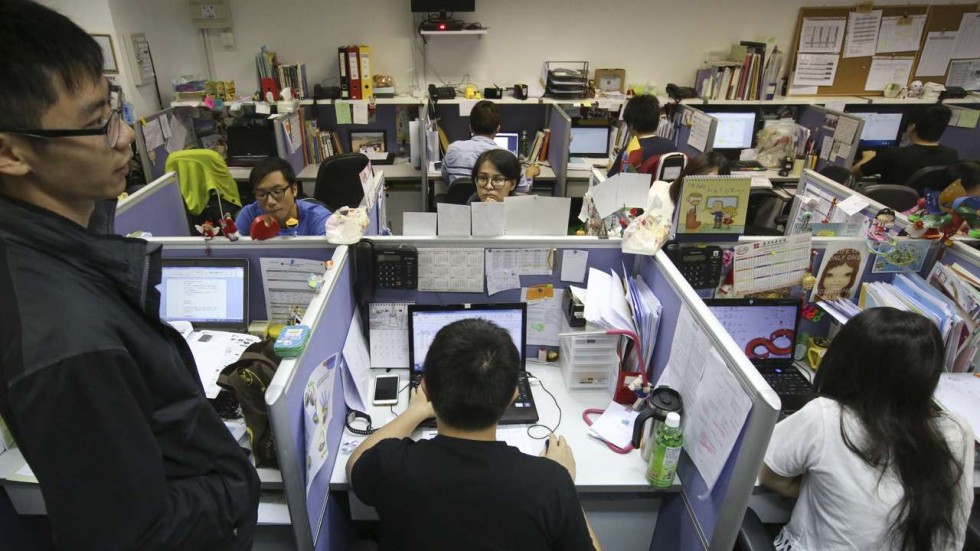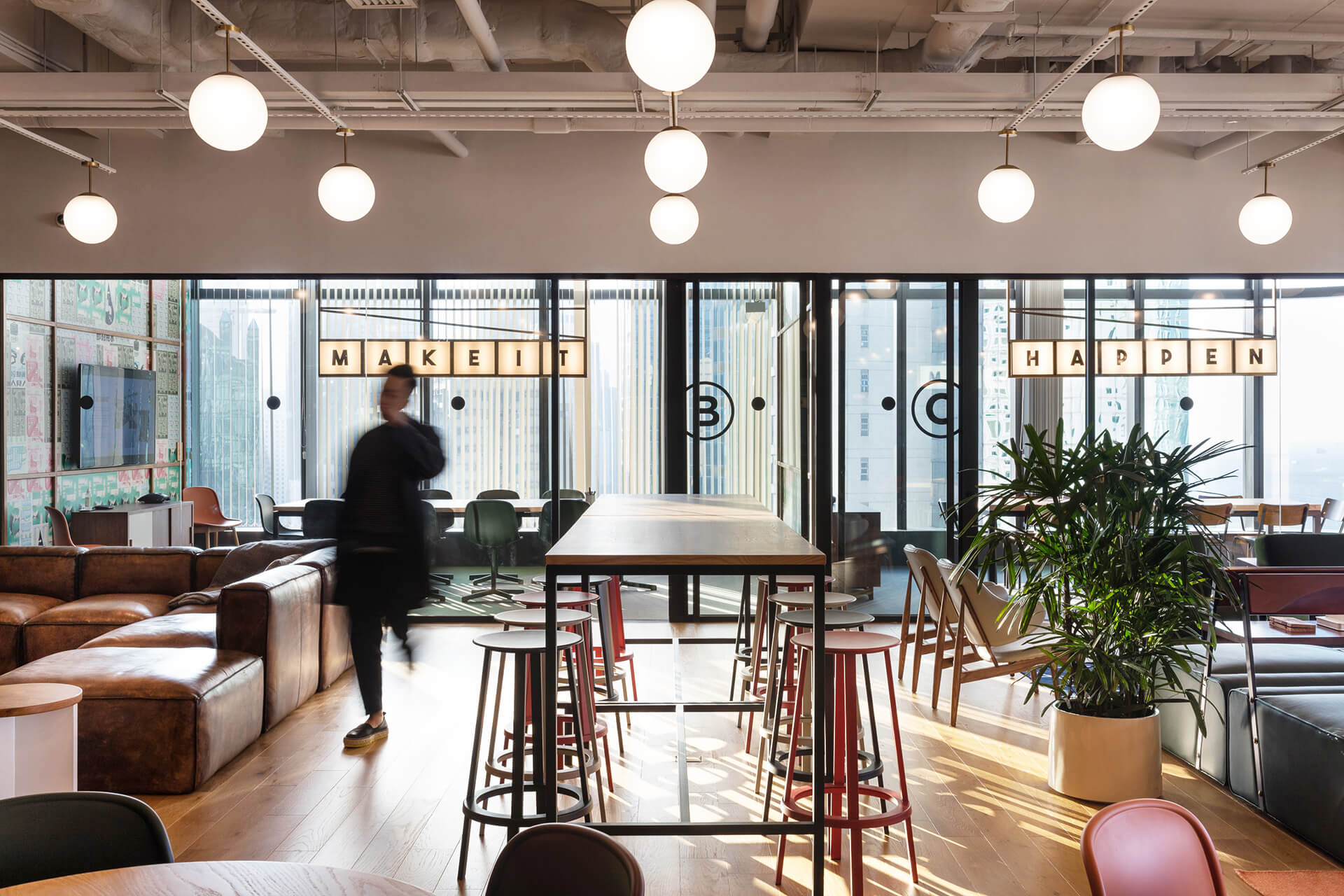When it comes to priority between fulfilling tasks at work and personal time, Hong Kong is at an unenviable position as among those countries and territories that have the worst work-life balance.
In fact, the city is ranked on top by Expert Market, an online B2B marketplace platform. At 50.1 hours a week, average Hong Kong worker clocked 27.4% more hours than global average, and six hours more than second-placer Mumbai.
Maybe because more are expected from employees in a city where the number of regional headquarters is growing (1,413 in 2017, up from 1,379 in 2016). Despite apparent benefits of good broadband network, introduction to working remotely, and flexible hours, the city remains on top of the rankings.
I work in an advertising agency, where it’s typical for co-workers to stay in office past 8pm and not unusual to go home by 10pm (company-paid taxi service and dinner reimbursement has been a consolation for lack of overtime pay). Although most of them don’t arrive until 10:30 or 11am, such daily routine deprive them from fulfilling meaningful tasks other than work such as hang out with friends, share dinner with family, watch movies or have coffee without workload as agenda.
Technological advancement appears like a curse instead of a blessing. Hong Kong is consistently among the top five globally in terms of fastest average Internet connection speeds. And mobile penetration is close to 100%. Both advantages can work against workers who feel pressured to respond promptly to work-related calls and emails even when they are on holiday.
A survey by Randstad Workmonitor survey indicate dedication to work or pressure to deliver, depending on who you ask:
- 77% employees in Hong Kong feel pressured to respond to work related calls and e-mails while on holiday.
- 62% of employees believe their employer expects them to be available by phone and e-mail during holidays.
- 60% respond to work related calls and e-mails immediately outside regular office hours.
Such work atmosphere could create a stressful environment where employer’s and client’s interests come first ahead of family or personal well-being.
It is a slap in the face to employers who fail to promote work-life balance in Hong Kong, making some companies less attractive to job seekers (especially the younger generation) who aim to balance work and life outside work. Although some companies offer more non-monetary perks at the office such as yoga sessions, free food and office entertainment, the dreaded extended time at the office could create suspicion that having such perks in the office are meant to keep workers from leaving workplace at desired time, and distract them from fulfilling their jobs.
In fairness to employers, some of whom have implemented employee-friendly terms, though often not reflecting on employment contracts. For example, workers are given more flexibility and autonomy to do their jobs. For example, allowing workers to come in earlier to avoid the deluge of public transport passengers within the 8am to 9:30am timeframe won’t make them feel guilty leaving office by 6pm, even if it means joining a huge number of fellow passengers on their way home by public transport.
There is this perception that the one who leaves earliest is deemed lazy or lack empathy to those who choose to sacrifice personal time in favor of work in hopes of getting promotions or pay raise. According to Labour Department, employers are obliged to give 7 days’ annual leave with pay after serving every period of 12 months under a continuous contract. While this leave entitlement compares with Singapore, Japan’s 10 and South Korea’s 15 are longer. So are many countries in Europe which range between 20 (United Kingdom and Switzerland) to 25 (France and Sweden). Thanks to the 12 paid public holidays in a year, it doesn’t sound as bad as it seems.
Conversely, those who describe themselves ‘afternoon person’ may come in later, and also leave work later. Such flexible arrangements have resulted in better productivity and bring out the best in workers. The important thing is that if tasks for the day are done, there’s no need to linger in the office and waste resources such as office power consumption watching YouTube videos while waiting for the ‘official time’ to leave work. Having to leave office earlier means more time spent on things like doing errands, catching your favorite TV shows and sharing more time with parents or kids at home.
The introduction of co-working spaces provide additional option for workers — full-time or part-time — has resulted in an an environment of happier workers, better performance and enhanced productivity and creativity. Perhaps the decorations, open and less corporate office layout, and opportunity to socialize with other similar-minded professionals who are not necessarily their colleagues. If HSBC is saving money with its move to house 300 staff into WeWork in Causeway Bay, it should be a bonus and not a primary objective. After all, happy workers result in more job efficiency, greater retention and less turnover, as well as less lost hours due to sickness and medical leaves — all of which translates to savings on expenses.
But whether companies join the bandwagon and relocate their workers to open spaces in a shared environment decorated with fancy lighting and inviting vibe, they should also ditch that dreaded old attitude. For example, sending emails demanding immediate reply after working hours is a no-no. So is setting project timelines that is unrealistic or over promising performance results to clients at short period because it is a symptom of a bad manager.
I think many companies assume that their workers can be compensated with bonuses or bigger salary package to entice them into joining. The high salary offer, ironically, could be considered as Achilles heel of a company if it is easily understood as more pressure at work, long working hours and barrage of demands from bosses who use wage as a negotiating gambit. What’s the use of higher salary, if you can’t enjoy it because you are constantly worrying about meeting client’s high expectations or inflated sales performance that sometimes lead to fears of getting axed from the job.
The introduction of co-working spaces and similar work arrangements and better understanding of workplace preferences among younger members of the labor market should help lift Hong Kong off that dubious ranking on work-life balance. The question now is how quickly these changes are made to make employers more attractive to job seekers in the midst of the city’s rapidly aging population.




